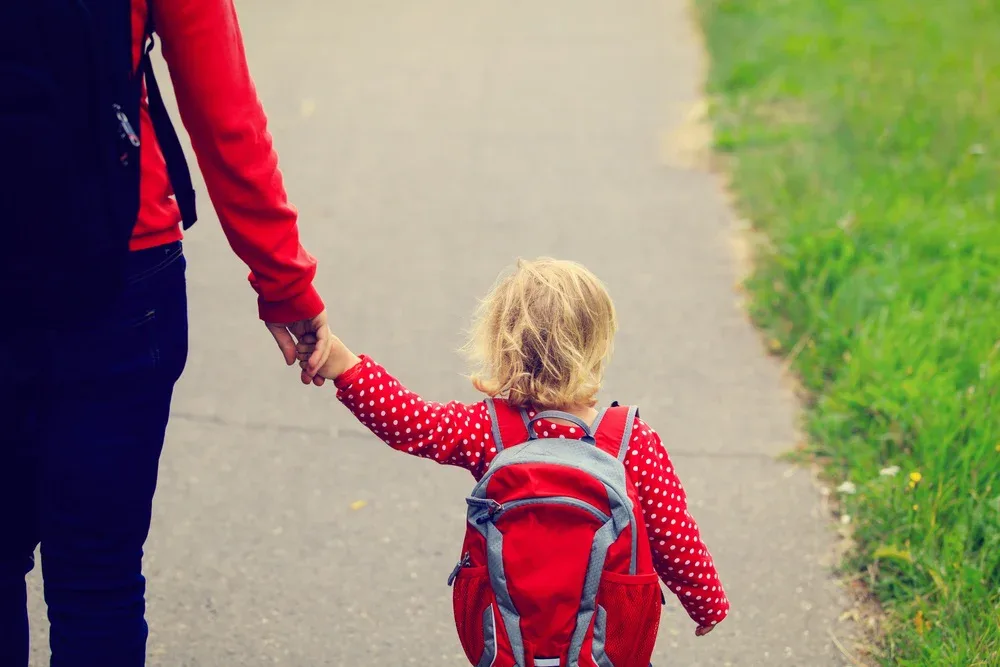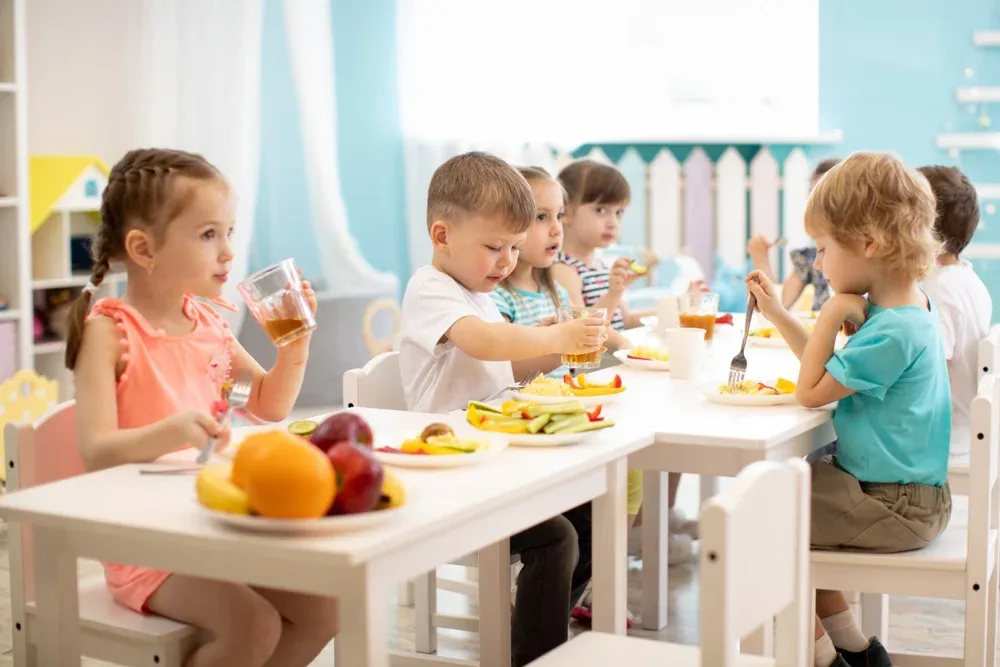 Facilitating a child’s smooth transitioning to daycare involves establishing a consistent morning routine. Addressing separation anxiety through a reassuring drop-off routine and building trust with caregivers. Introducing a comforting object adds familiarity, encouraging positive peer interactions and fostering socialization skills. The key to success is creating a supportive and nurturing environment where parents and caregivers collaborate to ensure a secure and engaging early learning experience. Transitioning to daycare can be a significant milestone for both parents and children. Parents need to consider important factors to prevent from any harm to their children.
Facilitating a child’s smooth transitioning to daycare involves establishing a consistent morning routine. Addressing separation anxiety through a reassuring drop-off routine and building trust with caregivers. Introducing a comforting object adds familiarity, encouraging positive peer interactions and fostering socialization skills. The key to success is creating a supportive and nurturing environment where parents and caregivers collaborate to ensure a secure and engaging early learning experience. Transitioning to daycare can be a significant milestone for both parents and children. Parents need to consider important factors to prevent from any harm to their children.
Contents
- 1 Gradual Introduction
- 2 Navigating Mealtime Challenges
- 3 Fostering a Positive Connection with Peers
- 4 FAQs
- 4.1 How can I assist my child in overcoming fear related to being dropped off at daycare?
- 4.2 What should I pack in my child's daycare bag?
- 4.3 What is the best way to stay informed about my child's day at daycare?
- 4.4 How do I handle naptime routines and sleep schedules at daycare?
- 4.5 What steps can I take if my child struggles to adjust to daycare?
- 5 Conclusion
Gradual Introduction
In the early stages of transitioning to daycare, start with short visits to the daycare before the official start date. This allows your child to become familiar with the new environment and caregivers. Increase the duration of visits gradually to help your child adjust to spending more time at the daycare.
Establish a Routine
Create a consistent morning routine to ease the transitioning to daycare process. Understanding what is coming can give your child a sense of reassurance and steadiness. Practice the routine at home before the start date to make mornings smoother.
Familiar Objects
Motivate your child to bring a familiar object from home, such as a favorite toy or blanket, to provide comfort. This can provide a sense of security in the new environment and also through the whole process of transitioning to daycare.
Communicate with Caregivers
Share information about your child’s habits, likes, and dislikes with the daycare staff. Effective communication can help them provide personalized support so that your child can experience a comfortable transitioning to daycare. Discuss specific routines or rituals your child follows at home to maintain consistency.
Positive Goodbyes
Keep goodbyes short and positive. Reassure your child that you will be back and reinforce the idea that daycare is a safe and enjoyable place. Develop a goodbye ritual, such as a special wave or saying, to make the process of transitioning to daycare easier.
Stay Consistent
In order to maintain a reassuring and confident transitioning to daycare for your child, stick to a consistent drop-off and pick-up schedule. Predictability helps children feel secure in their routines. Be punctual when picking up your child to build trust and security.
Build Trust
Spend time getting to know the daycare staff. Building a relationship with them will help your child feel more comfortable in their transitioning to daycare. Attend any orientation sessions or events the daycare offers to familiarize yourself with their policies and procedures.
Positive Feedback
Provide positive feedback about the daycare experience. Share stories about the fun activities or new friends your child has made to reinforce positive associations during the process of transitioning to daycare.
Monitor and Adjust
Pay attention to your child’s behavior and emotions during the transition. If there are challenges, work with the daycare staff to find solutions and adjust as needed.
Self-Care for Parents
Acknowledge and manage your own emotions during this transition. Feeling a mix of emotions is normal, but taking care of yourself will enable you to support your child better. Remember that each child is unique, and so the transitioning to daycare may vary. Patience, consistency, and open communication are key elements in ensuring a successful transition to daycare for you and your child.
Navigating children’s mealtime challenges can be a dynamic journey for parents. Crafting nutritious and visually appealing lunches is essential to ensure they receive the energy needed for play and learning. Picky eating habits may arise, but gradual exposure to diverse flavors, involving them in meal preparation, can encourage a positive attitude towards trying new foods.
 Daycare introduces children to new culinary experiences, making it crucial for parents to address preferences and dietary restrictions when packing lunches. Overcoming these challenges contributes to a child’s overall health and fosters a positive relationship with food, promoting a well-balanced approach to nutrition.
Daycare introduces children to new culinary experiences, making it crucial for parents to address preferences and dietary restrictions when packing lunches. Overcoming these challenges contributes to a child’s overall health and fosters a positive relationship with food, promoting a well-balanced approach to nutrition.
Packing Healthy and Appealing Lunches
Crafting nutritious and visually appealing lunches ensures your child receives the energy needed for a day of play and learning. Consider your child’s preferences and dietary restrictions, incorporating a variety of food groups for a well-balanced meal.
Addressing Picky Eating Habits
Daycare often exposes children to new foods. Encourage a positive attitude towards trying new things by involving your child in meal preparation at home. Gradually introducing diverse flavors contributes to developing a healthy palate.
Fostering a Positive Connection with Peers
Fostering a positive connection with peers is a pivotal aspect of a child’s social development. Encouraging play and collaboration in a daycare setting helps children build essential socialization skills. Group activities and shared experiences contribute to the development of teamwork and cooperation.
 As children engage with their peers, they learn to navigate social dynamics, share, and communicate effectively. Addressing conflicts and teasing with guidance on conflict resolution empowers them to build strong, positive relationships. Cultivating these connections through the stages of transitioning to daycare enriches their daycare experience and lays the foundation for healthy social interactions in the future.
As children engage with their peers, they learn to navigate social dynamics, share, and communicate effectively. Addressing conflicts and teasing with guidance on conflict resolution empowers them to build strong, positive relationships. Cultivating these connections through the stages of transitioning to daycare enriches their daycare experience and lays the foundation for healthy social interactions in the future.
Encouraging Play and Collaboration
Socialization is a cornerstone of daycare. Encourage your child to engage in group activities, fostering collaboration and teamwork. These experiences contribute to the development of crucial social skills.
Handling Conflict and Teasing
Teaching your child conflict resolution skills equips them to navigate disagreements independently. Discussing emotions, empathy, and effective communication strategies empowers children to build positive peer relationships.
FAQs
Encourage short, positive goodbyes and establish a consistent routine. Reassure your child that you will return and highlight the exciting activities they will engage in at daycare.
What should I pack in my child's daycare bag?
Pack essentials like a change of clothes, diapers (if needed), comfort items from home, a water bottle, and any specific items requested by the daycare staff. Labeling belongings can help prevent mix-ups.
What is the best way to stay informed about my child's day at daycare?
If you want to provide a smooth transitioning to daycare, ask the caregivers to provide daily reports or updates. Communicate with the caregivers regularly, attend parent-teacher meetings, and use any communication channels, such as apps or emails, to stay informed about your child’s activities, meals, and mood.
How do I handle naptime routines and sleep schedules at daycare?
Share your child’s sleep schedule with the daycare staff. Provide any necessary comfort items for naptime. Collaborate with caregivers to ensure consistency between home and daycare sleep routines.
What steps can I take if my child struggles to adjust to daycare?
If your child is having problems when transitioning to daycare, communicate openly with the daycare staff. Discuss any changes in behavior, routines, or preferences. Work together to identify strategies to help your child feel more comfortable and engaged in the daycare environment.
Conclusion
In conclusion, transitioning to daycare is a significant step for parents and children, marked by various emotions and adjustments. By approaching the process with patience, consistency, and positive communication, you can help ease your child into their new environment. Building a strong partnership with the daycare staff, maintaining open lines of communication, and celebrating small victories along the way contribute to a smoother transition. Remember that each child is unique, and the adjustment period may vary, so be attuned to your child’s needs and provide the necessary support. With time, the daycare experience can become a positive and enriching part of your child’s development, fostering new friendships, skills, and a sense of independence. Having mentioned the important factors above, we are here to provide a safe and most friendly environment for your child’s growth and skills development. Visit Deecyda to see our programs and wide range of support for your children’s daycare.

